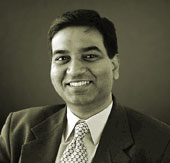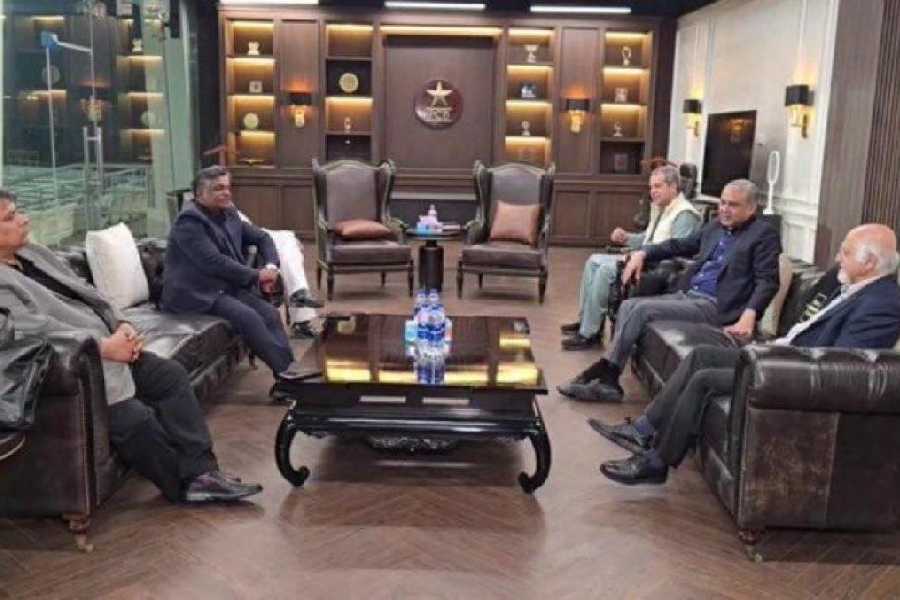 |
Ashutosh Srivastava is a split personality. Outside office, the South Asia CEO of GroupM (advertising conglomerate WPP’s media arm) is like any regular guy interested in films, cricket and food. A self-confessed technology freak, his favourite pastime is playing with his six-year-old daughter, who he fancies will be Sania Mirza one day.
At work, however, Srivastava is indefatigable. As head of the Indian operations of GroupM (he took over from veteran Andre Nair in October 2004), he’s driven to the point of being obsessed. “The tendency is to get dissatisfied with everything our organisation does, rather quickly,” says he. “I guess that’s the conditioning from working in a service industry where you have to prove yourself to your customers everyday.”
Srivastava is responsible for a host of GroupM brands in the country. These companies deal in communications planning and buying traditional and non-traditional media, data analytics, sports and entertainment marketing, content barter and much more.
In the next two years, the hard-nosed CEO wants to shore up the capabilities of some of these companies involved in emerging sectors like branded entertainment, digital and interactive services, brand activation and marketing RoI (return on investment). It also means boosting the business in emerging markets like Pakistan. Srivastava has already set up MAXUS in Lahore and MindShare in Karachi.
Although GroupM is managing a formidable 25-30 per cent growth every year, Srivastava’s edginess is palpable. “I get disgruntled with status quo,” he explains.
In the next three years, he is targeting a revenue mix of 50:50 (currently it is 75:25) between its core business of planning and buying and the rest of the diversified services.
But how does the alumnus of Ahmedabad’s Indian Institute of Management drive so many companies efficiently? “The credit goes to the highly empowered and talented senior management team that we have,’ he replies. “I spend enough time with individual leaders to make sure that opportunities are never missed.”
An authority on media, it is difficult to imagine Srivastava in any other role. While the industry may have woken up to the importance of the media some six to seven years ago, at the WPP companies, media got recognition at least 12 years ago, he claims. “This is when it became a real career choice for me.”
Advertising became his chosen career during the 1987 campus placements at IIM-A. He was recruited for HTA, WPP’s biggest agency in India, by the company’s executive vice-president Anil Bhatia. Ever since, Srivastava has been with the agency, rising steadily through the ranks.
Among the memorable moments, he recounts the 1996 Wills World Cup when the agency hijacked the Coca-Cola sponsorship of the event with its incredibly successful Nothing Official About It campaign.
Cut to 2006. The much sought-after media expert has been roped in by a host of bodies like the joint committee of the Advertising Agencies Association of India and the Indian Broadcasting Foundation, the CII Entertainment subcommittee and the Joint Industry Body for TV audience measurement. He also sits on the committees of readership survey bodies.
But does he actually find time to make any significant contribution to these bodies? “Normally, I sleep through these meetings,” he laughs. On a more serious note, however, he says that he makes it a point to attend the key meetings. “As part of a company that is shaping the industry and many of the practices, it is vital for me to make time for this, so I just go ahead and do it,” he adds.
For someone who comes from a family of professionals ? academicians, doctors and lawyers ? Srivastava’s move into the corporate sector was viewed with suspicion.
But the brilliant student from Lucknow does not regret having given the CAT exam for a lark. “It changed my destiny. I happily gave up forced dreams of warming a boring government office chair with a white towel at the back.”
Now that he’s in the hot seat, what does he predict about the media scenario in India? “We have yet to see the best of it,” he says. “I believe that we are set to witness a period of massive disruption in the next three to four years mainly due to the impact of technology.”
Based on a conversation with Shuchi Bansal in New Delhi










